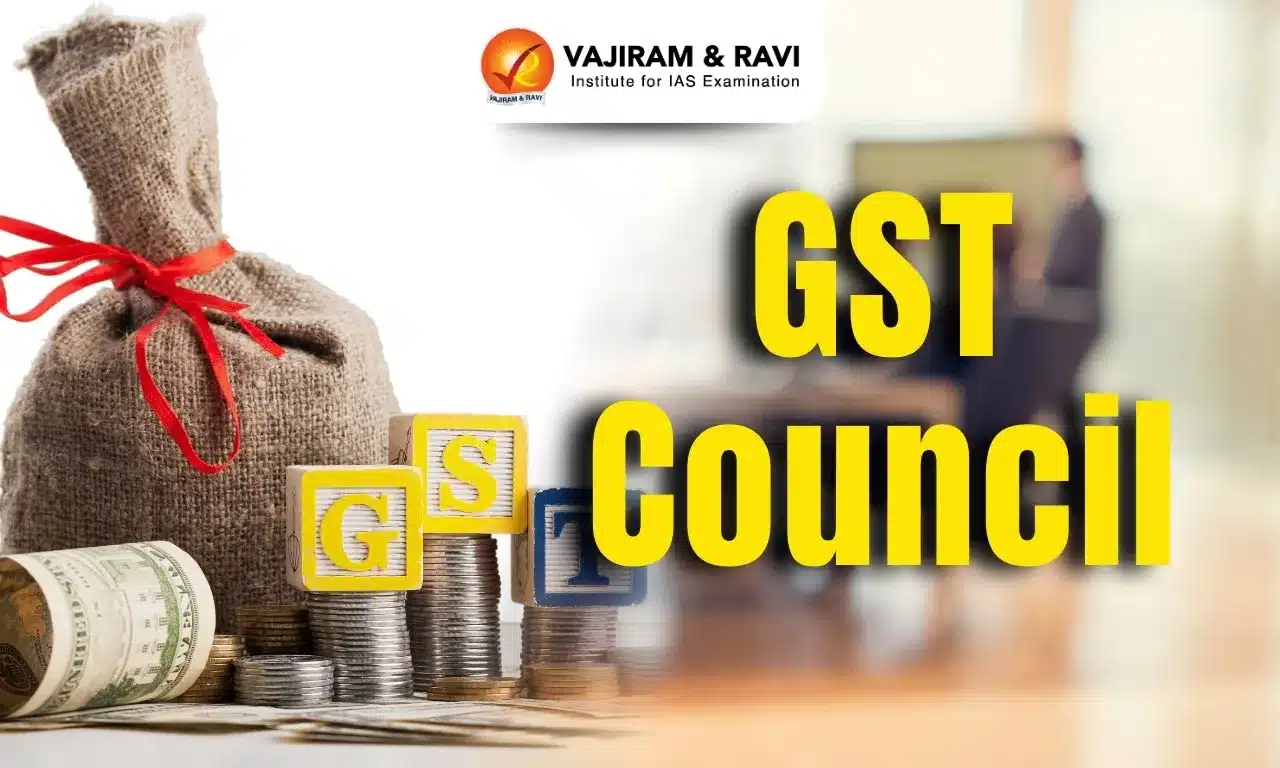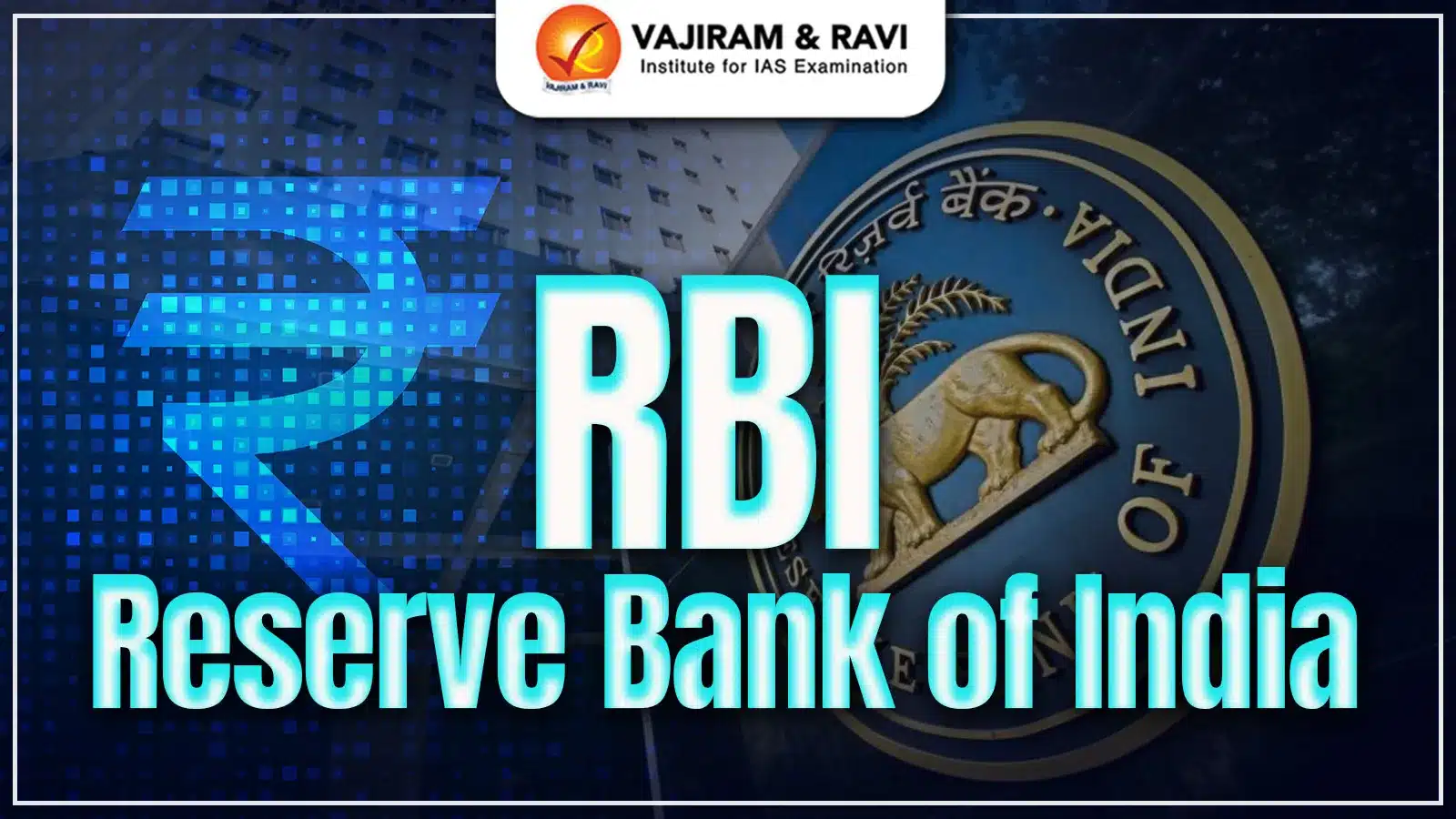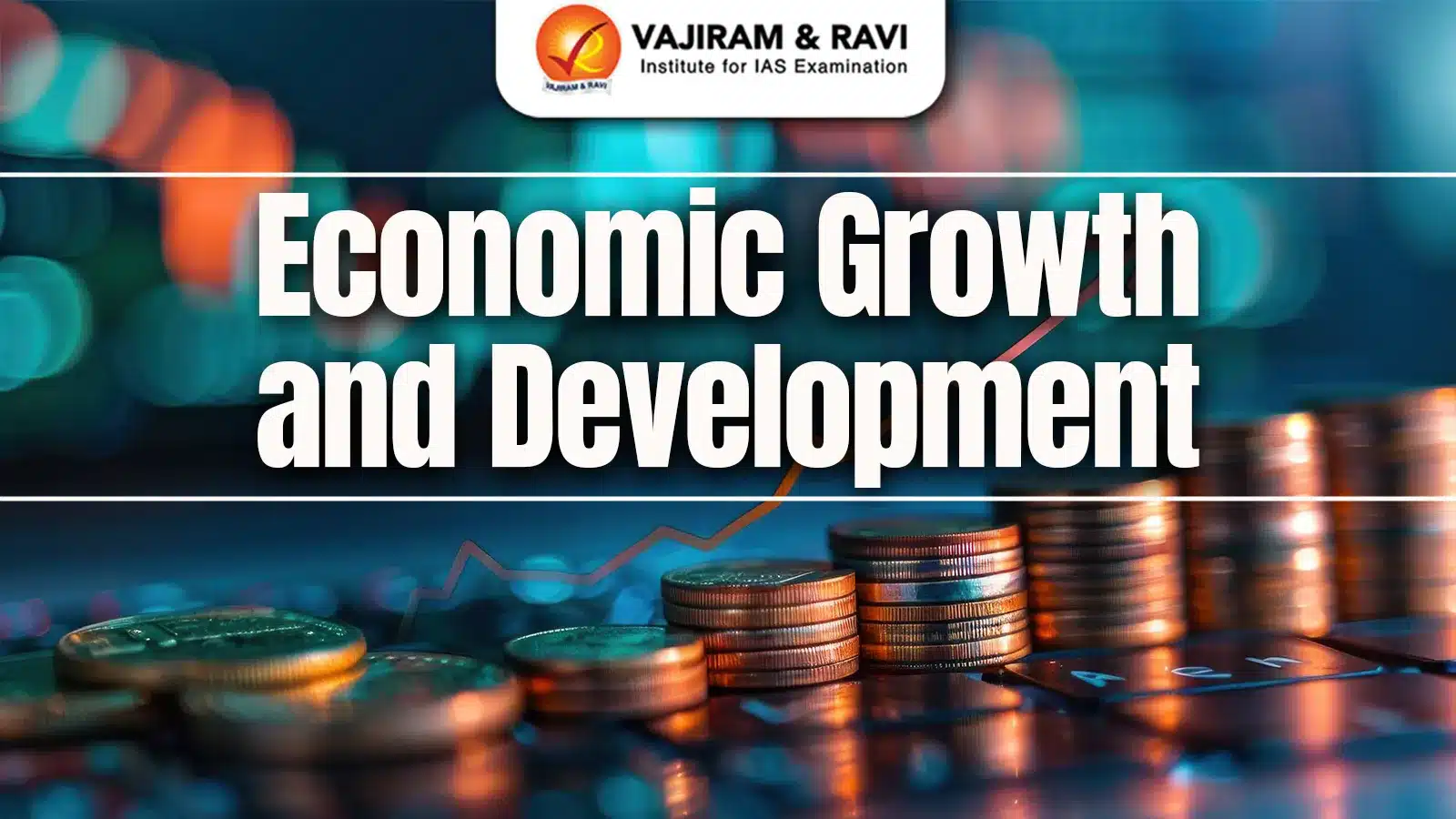The Goods and Services Tax (GST) Council was established under the 101st Constitutional Amendment Act, 2016. The GST Council is a constitutional body responsible for addressing GST-related issues and providing recommendations to both the Union and State governments on matters of taxation.
It also plays a crucial role in shaping the GST framework and ensuring its effective implementation across the country.
GST Council Overview
The GST Council is a pivotal constitutional body tasked with overseeing the implementation and administration of the GST in India. Formed under the 101st Constitutional Amendment through Article 279A, the GST Council plays a critical role in creating a harmonized tax structure and fostering a unified national market for goods and services. In line with this, accordingly, the President of India issued the order in 2016 and constituted the Council, with its Secretariat located in New Delhi.
- Vision: The vision of the GST Council is to set the highest standards of cooperative federalism, making it the first constitutional body empowered to make significant decisions regarding GST.
- Mission: Its mission focuses on evolving a GST structure through wide consultations, aiming to create a user-friendly, information technology-driven system.
Objectives of GST Council
GST Council has been instrumental in shaping policies, settling disputes, and ensuring the seamless execution of the GST system throughout the nation since its establishment. Its key objectives include the following:
- To ensure a smooth implementation of GST.
- To simplify the tax structure, eliminate cascading taxes, and reduce compliance costs.
- To monitor all the taxation processes to avoid fraudulent processes.
GST Council Constitutional Provisions
The GST Council, established under the 101st Constitutional Amendment Act, is a constitutional body tasked with making key recommendations on Goods and Services Tax (GST). Significant constitutional provisions related to the Council include:
- Formation of the GST Council: Article 279A (1) mandates the President to form the GST Council within 60 days of the commencement of the 101st Amendment Act, 2016.
- GST Levy Date Recommendation: Article 279A (5) empowers the GST Council to recommend the date for levying GST on specific goods like petroleum, diesel, petrol, natural gas, and aviation fuel.
- Guiding Principles for Functioning: Article 279A (6) ensures that the GST Council's actions promote a unified national market and harmonize GST structures.
- Procedural Framework: Article 279A (8) assigns the GST Council the responsibility to establish procedures for carrying out its functions.
- Validity of GST Council Proceedings: Article 279A (10) ensures the validity of GST Council proceedings despite vacancies or flaws, as long as they do not affect the merits or procedural integrity.
- GST on Specific Goods: Article 279A (11) tasks the GST Council with resolving disputes between the Government of India and States regarding GST implementation.
GST Council Composition
According to Article 279A of the amended Constitution, the GST Council, a collaborative body between the Centre and the States, consists of the following members:
|
Chairperson |
- The Union Finance Minister |
|
Vice Chairperson |
- The GST Council members elect a Vice-Chairperson from among themselves for a period they decide. |
|
Members |
- Union Minister of State for Revenue or Finance. - State Minister for Finance, Taxation, or a nominated Minister. |
|
Permanent Invitee |
- Chairperson of the Central Board of Indirect Taxes and Customs (CBIC) (non-voting). |
|
Ex-officio Secretary |
- Union Revenue Secretary from the Ministry of Finance. |
Functions of GST Council
The functions of the GST Council are outlined in Article 279A (4). It mandates the Council to provide recommendations to both the Union and State governments on various aspects of GST, such as tax rates, exemptions, threshold limits, and other matters related to its implementation and administration.
- Taxes to be Subsumed: The taxes, cesses, and surcharges levied by the Union, the States, and the local bodies which may be subsumed in the goods and services tax.
- Goods and Services Subject to GST: The goods and services that may be subjected to, or exempted from, the GST.
- Model GST Laws and Principles: Model GST Laws, principles of levy, apportionment of GST levied on supplies in the course of inter-state trade or commerce under article 269A, and the principles that govern the place of supply.
- Threshold Turnover Limit: The threshold limit of turnover below which goods and services may be exempted from GST.
- GST Rates: The rates include floor rates with bands of GST.
- Special Rates for Emergencies: Any special rate or rates for a specified period to raise additional resources during any natural calamity or disaster.
- Special Provisions for Specific States: Special provisions concerning the States of Arunachal Pradesh, Assam, Jammu and Kashmir, Manipur, Meghalaya, Mizoram, Nagaland, Sikkim, Tripura, Himachal Pradesh, and Uttarakhand;
- Other Matters Related to GST: Any other matter relating to the GST, as the Council may decide.
Working of GST Council
The GST Council works as a collaborative platform where the Union and State Governments discuss, deliberate, and make decisions on GST-related matters. Its functioning ensures that both levels of government are represented, promoting cooperation and inclusivity. Key aspects of its working include the following:
- Quorum Requirement: Article 279A (7) states that at least one-half of the total members of the GST Council must be present to constitute the quorum for its meetings.
- Decision-Making Process: Article 279A (9) specifies that every decision of the GST Council must be made at a meeting with a majority of not less than three-fourths of the weighted votes of the members present and voting.
- Vote Weightage: The vote of the Central Government carries a weightage of one-third of the total votes cast at the meeting.
- The collective votes of all State Governments carry a weightage of two-thirds of the total votes cast.
GST Council Meetings Outcomes
GST Council’s decisions have a direct impact on the tax burden of businesses and consumers and on the overall economic environment of the country. Some of the major outcomes of the GST Council include:
- Dual GST Model: The GST Council has recommended implementing a dual GST model in India, under which both the Central and State Governments levy GST on the supply of goods and services.
- Five Tax Slabs: The GST Council has classified goods and services into five tax slabs including 0%, 5%, 12%, 18%, and 28%. Some goods and services have also been exempted from GST, while others have been subjected to additional cesses on top of the applicable GST rate.
- GST Compliance System: The GST Council has implemented a comprehensive GST compliance system, including an online portal for filing GST returns and making tax payments.
- Reduction of Tax Burden: The GST Council has reduced the compliance burden on businesses by allowing businesses to avail of input tax credits for GST paid on their purchases and allowing for the composition scheme for small businesses.
GST Council Recent Developments
The GST Council has recently convened its 53rd, 54th, and 55th meetings, introducing several significant changes to India's GST framework. Below is a summary of the key developments from these meetings:
- 53rd GST Council Meeting:
- GST Rate Adjustments: The Council reduced the GST rate on cartons, boxes, and cases made of both corrugated and non-corrugated paper or paperboard from 18% to 12%.
-
-
- GST Rate on Milk Cans: The Council set the GST rate on all milk cans made of steel, iron, or aluminium at 12%, irrespective of their intended use.
-
- 54th GST Council Meeting:
-
- Cancer Drugs: The Council recommended the reduction of the GST rate on cancer medications, including Trastuzumab Deruxtecan, Osimertinib, and Durvalumab, from 12% to 5%.
- 55th GST Council Meeting:
- Reduction in GST Rate on Fortified Rice Kernel (FRK): The Council recommended reducing the GST rate on FRK, classified under HS code 1904, to 5%.
- Exemption of GST on Gene Therapy: It was proposed to fully exempt GST on gene therapy treatments, recognizing their critical role in advanced medical care.
- Increase in GST Rate on Sale of Used Vehicles: The GST rate on the margin (difference between purchase and selling price) on the sale of all old and used vehicles, including electric vehicles, was recommended to be increased from 12% to 18%.
- Compensation Cess: The GST Council proposed reducing the Compensation Cess rate to 0.1% on supplies to merchant exporters, aligning it with the GST rate on such supplies.
GST Council UPSC PYQs
Question1. What is/are the most likely advantages of implementing ‘Goods and Services Tax (GST)’? (UPSC Prelims 2017)
- It will replace multiple taxes collected by multiple authorities and will thus create a single market in India.
- It will drastically reduce the ‘Current Account Deficit’ of India and will enable it to increase its foreign exchange reserves.
- It will enormously increase the growth and size of the economy of India and will enable it to overtake China in the near future.
Select the correct answer using the code given below:
- 1 only
- 2 and 3 only
- 1 and 3 only
- 1, 2 and 3
Answer: (a)
Question 2. Explain the rationale behind the Goods and Services Tax (Compensation to states) act of 2017. How has COVID-19 impacted the GST compensation fund and created new federal tensions? (UPSC Mains 2020)
Question 3. Enumerate the indirect taxes which have been subsumed in the goods and services tax (GST) in India. Also, comment on the revenue implications of the GST introduced in India since July 2017. (UPSC Mains 2017)
Last updated on November, 2025
→ Check out the latest UPSC Syllabus 2026 here.
→ Join Vajiram & Ravi’s Interview Guidance Programme for expert help to crack your final UPSC stage.
→ UPSC Mains Result 2025 is now out.
→ UPSC Notification 2026 is scheduled to be released on January 14, 2026.
→ UPSC Calendar 2026 is released on 15th May, 2025.
→ The UPSC Vacancy 2025 were released 1129, out of which 979 were for UPSC CSE and remaining 150 are for UPSC IFoS.
→ UPSC Prelims 2026 will be conducted on 24th May, 2026 & UPSC Mains 2026 will be conducted on 21st August 2026.
→ The UPSC Selection Process is of 3 stages-Prelims, Mains and Interview.
→ UPSC Result 2024 is released with latest UPSC Marksheet 2024. Check Now!
→ UPSC Prelims Result 2025 is out now for the CSE held on 25 May 2025.
→ UPSC Toppers List 2024 is released now. Shakti Dubey is UPSC AIR 1 2024 Topper.
→ UPSC Prelims Question Paper 2025 and Unofficial Prelims Answer Key 2025 are available now.
→ UPSC Mains Question Paper 2025 is out for Essay, GS 1, 2, 3 & GS 4.
→ UPSC Mains Indian Language Question Paper 2025 is now out.
→ UPSC Mains Optional Question Paper 2025 is now out.
→ Also check Best IAS Coaching in Delhi
GST Council FAQs
Q1. What is the GST Council?+
Q2. When was the GST Council formed?+
Q3. Which article establishes the GST Council?+
Q4. Who chairs the GST Council?+
Q5. How are decisions made in the GST Council?+

















